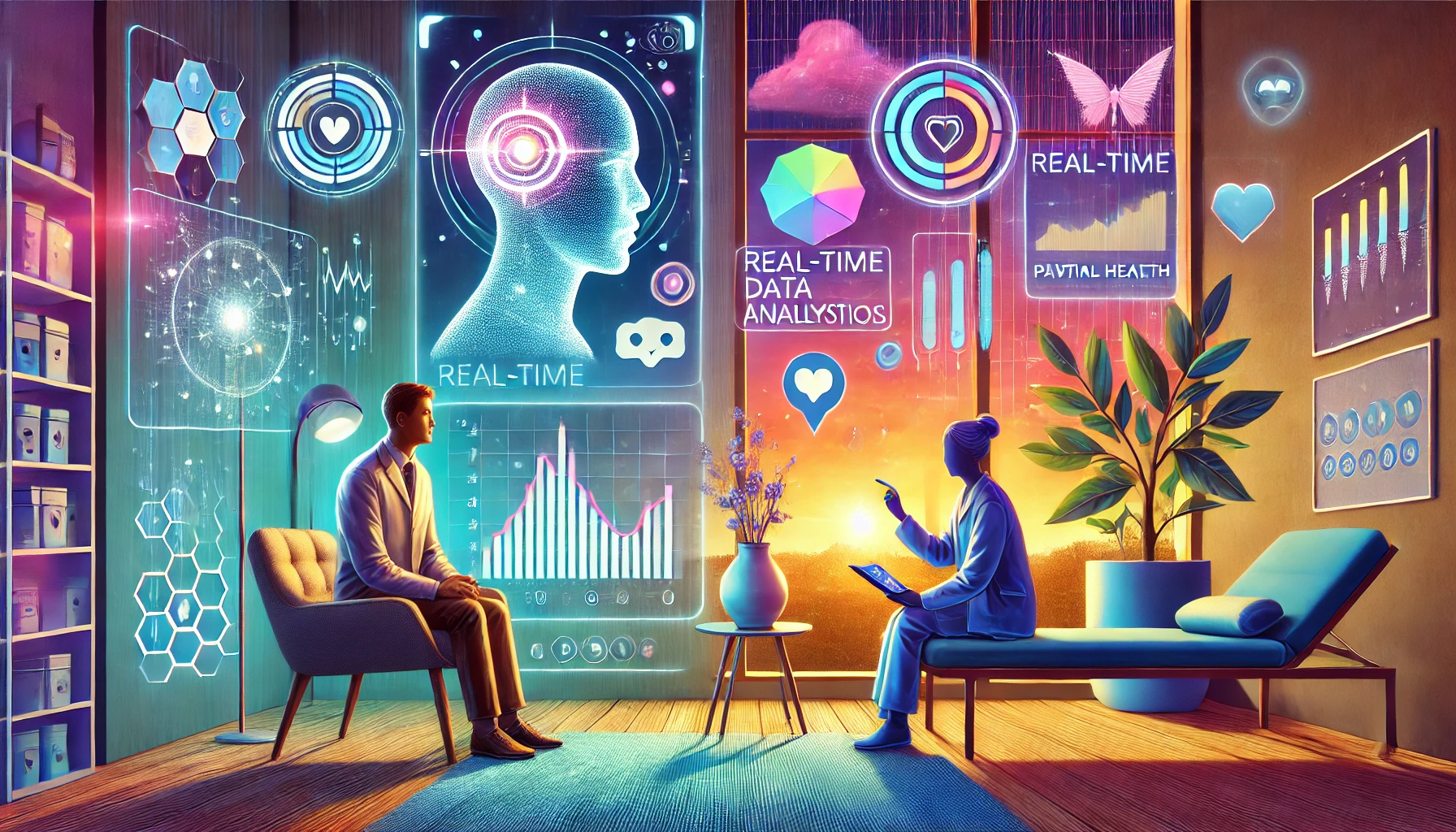Personalized therapy for anxiety: The promise of AI-driven healthcare
AI-driven tools harness ML algorithms to provide insights into anxiety disorders. Supervised ML models, such as logistic regression and support vector machines (SVM), are instrumental in diagnosing and classifying mental health conditions. These models leverage pre-labeled data to identify patterns, such as historical clinical data or genetic predispositions, to predict the likelihood of anxiety disorders. Unsupervised learning, on the other hand, identifies previously unknown patterns in complex datasets, such as neuroimaging or physiological data, revealing new insights into mental health conditions.

Anxiety disorders, encompassing conditions such as generalized anxiety disorder (GAD), social anxiety disorder (SAD), and post-traumatic stress disorder (PTSD), represent some of the most pervasive mental health challenges globally. Despite the availability of treatments like cognitive behavioral therapy (CBT) and medication, several barriers limit their effectiveness. Accessibility issues, particularly in under-resourced regions, prevent many from seeking help. Additionally, the stigma surrounding mental health care deters individuals from pursuing treatment, while resource constraints, such as a shortage of qualified therapists, exacerbate these challenges.
Recognizing these challenges, the study "A Review on the Efficacy of Artificial Intelligence for Managing Anxiety Disorders" by K.P. Das and P. Gavade, published in Frontiers in Artificial Intelligence in October 2024, explores how AI technologies can revolutionize the diagnosis and management of anxiety disorders.
The study emphasizes the transformative role of artificial intelligence (AI) in bridging these gaps. AI technologies offer personalized care, enable early detection, and streamline therapeutic interventions, making mental health support more accessible and efficient. By analyzing complex patient data, AI tools generate real-time insights for clinicians, aiding in diagnosis and treatment planning. For instance, machine learning (ML) models can evaluate vast datasets to predict risk factors, assess symptom severity, and recommend tailored therapeutic approaches. Furthermore, technologies like virtual reality (VR) and natural language processing (NLP) create immersive platforms for therapies, such as exposure exercises and chatbot-assisted CBT, enhancing patient engagement and treatment outcomes.
Key AI techniques in anxiety management
Machine learning and predictive analytics
AI-driven tools harness ML algorithms to provide insights into anxiety disorders. Supervised ML models, such as logistic regression and support vector machines (SVM), are instrumental in diagnosing and classifying mental health conditions. These models leverage pre-labeled data to identify patterns, such as historical clinical data or genetic predispositions, to predict the likelihood of anxiety disorders. Unsupervised learning, on the other hand, identifies previously unknown patterns in complex datasets, such as neuroimaging or physiological data, revealing new insights into mental health conditions.
Reinforcement learning, another AI technique, enhances decision-making in therapeutic settings by dynamically adapting treatment plans based on patient responses. For example, virtual agents using reinforcement learning can interact with patients during cognitive training, progressively refining therapeutic strategies to achieve better outcomes.
Virtual reality in therapy
Virtual reality, when integrated with AI, has shown considerable promise in managing anxiety disorders. VR-based exposure therapy enables patients to confront their fears in controlled, simulated environments. For example, individuals with social anxiety can engage in virtual social scenarios designed to desensitize them to real-world triggers. These AI-enhanced VR platforms adjust the intensity of scenarios based on patient responses, ensuring a personalized therapeutic experience.
Wearable devices, equipped with AI algorithms, further support anxiety management by monitoring physiological markers like heart rate, galvanic skin response, and skin temperature. These real-time metrics provide actionable insights to both patients and clinicians, helping to track anxiety levels and assess the efficacy of interventions.
Natural language processing and chatbots
NLP-powered chatbots represent a breakthrough in making mental health support widely accessible. These systems analyze user inputs, including text and voice, to detect emotional distress and provide personalized responses. Chatbots like "Wysa" and "Tess" have demonstrated their potential to engage users and deliver psychoeducational content effectively. By simulating therapeutic interactions, these tools help individuals manage their symptoms while addressing the stigma often associated with seeking mental health care.
The confidential nature of chatbot interactions makes them particularly appealing to those hesitant to approach traditional therapy. Additionally, NLP systems can analyze the tone, word choice, and sentiment in user inputs to detect underlying issues, such as anxiety or depression, and guide users toward appropriate resources.
Challenges in automating mental health services
While AI offers immense potential, its integration into mental health care presents notable challenges. Data privacy and security are critical concerns, particularly when handling sensitive mental health information. AI models, if not properly trained, may exhibit algorithmic biases that could lead to inaccurate diagnoses or inequitable treatment recommendations.
The impersonal nature of AI systems also raises concerns, as mental health care often relies on human empathy and connection. Patients may perceive AI-driven tools as lacking the emotional understanding necessary for effective therapy. To address these limitations, the study highlights the importance of ethical frameworks that prioritize fairness, transparency, and the complementarity of AI and human expertise.
Strategic recommendations for AI implementation
Strategic recommendations for the effective implementation of AI in mental health care focus on creating a harmonious balance between technological innovation and human expertise. One key approach is to develop mixed-initiative interfaces, where AI systems complement clinicians by providing real-time data analysis and decision-making support while maintaining the clinician’s authority. These systems can, for example, flag potential anxiety risk factors, enabling therapists to tailor interventions based on their professional expertise and judgment.
Alongside technological advancements, it is essential to promote training and awareness among mental health professionals. Workshops, certifications, and hands-on training programs can help clinicians understand AI's capabilities and limitations, fostering trust and ensuring the confident integration of these tools into practice.
Additionally, adopting robust ethical guidelines is critical to addressing concerns related to data privacy, informed consent, and algorithmic fairness. Regulatory frameworks should ensure that AI applications adhere to high ethical standards, building trust among clinicians and patients alike while emphasizing the need for human oversight in AI-assisted care. Together, these recommendations aim to create an ecosystem where AI enhances therapeutic outcomes without compromising ethical or professional standards.
- FIRST PUBLISHED IN:
- Devdiscourse










